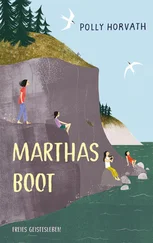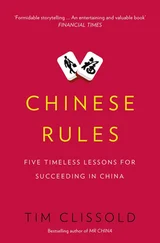Aloud banging noise was coming from my roof, and it wouldn’t let up. I kept glaring at the ceiling and waiting for it to cease, but nay — crescendo. Finally, I stormed outside. Sure enough, an entire baseball team was up on my roof, again —gloves, bats, a catcher in full tools of ignorance. In lieu of a baseball cap, each wore the signature blue headgear with yellow trim of the French military police. The catcher was the only one properly attired.
“Hey!” I said. “You’re playing baseball on my roof.”
A squat, wider man with a brazen mustache caught a crisp throw from third base, which I couldn’t see but assumed was on the far side. He spat tobacco in my general direction. “Yeah. Thanks.”
“That’s my roof you’re playing baseball on,” I said.
A lanky fellow, no more than eighteen, looked down. “And a mighty fine roof it is.”
Squat Mustache added, “Got some loose shingles over here between second and third, what our shortstop tells me.”
“Yeah?” I said.
“You could be looking at a lawsuit,” he said. “I’d get those fixed.”
“Who the hell do you think you are?”
“We’re the Gendarmes,” said one, sleeve outstretched with child-showing-off-diorama pride.
Just then a sharp foul ball took a harrowing turn, ricocheting off an oak trunk and toward my head. I snared it. There as a collective gasp from the roof, followed by a shout of “Out!” or “ Oui !” from somewhere over my kitchen, from a slight hump of an umpire.
I examined the baseball. It was a ball like any other, only around the stitching it read “For Rooftop Use Only. Danger: Do Not Use On Grass. Potential Combustible.”
I looked up.
“Explosive, eh?” I asked.
The players began to look at one another nervously. Then Squat Mustache called down, “We don’t talk about that. Traditional league rules. Just don’t get chlorophyll on it.”
“And redundant,” I continued scornfully. “‘Potential. Combust ible .’ Wasteful, just wasteful.” I shook my head disgustedly; nothing infuriated me more than redundancy.
I scanned my yard, which was, as it had been when I woke up that morning, covered with grass. It was wrong that a ball could hurtle at any moment and erupt into flame. At the same time, I knew that that was precisely what I wanted to happen, what would happen next if I allowed my instincts to hold sway. To protect us all, I tucked the ball into my pocket and began a frantic shimmy up the side of the house.
The players gathered and looked down with gasps of alarm. “What are you doing?” they cried out in patently fake French accents, shaking accusatory fingers, the big brown digits of mitts well-worn from use and exposure to hundreds of hours of midday sun. I planted a foot atop an outside light, grabbed a shutter, and hoisted myself the last few feet via a gutter.
Having never set foot on my roof, I little expected it to be covered with veritable pampas of artificial turf. And a baseball diamond, molded to the contours of the house, was shimmering in the now-fading daylight. There was also a cupola, which was inaccessible from inside my house.
“Okay, boys,” I said, grabbing a glove from the pile underneath the handwritten EXTRA , and pounding my fist into it. Gingerly, I made my way to what I guessed was second base. “Let’s play ball.”
They stood around looking sheepish, staring down at my roof, which, I could see, as the squat man had indicated, was in clear need of repair in places.
“What are we waiting for?” I demanded.
Finally, one mumbled, “We don’t really know how to play.” Another chimed in, “That’s why we’re up here. So people can’t see that we’re not actually playing.”
“So what are you doing?” I asked.
The Kid, as I decided I would call the eighteen-year-old, led me over to the far side of the roof, the side I hadn’t been able to see. To my shock, there were animals in cages — pigeons, a lemur, a raccoon with a clear case of alpacatitis of the testes. What I had mistaken for an umpire was in fact a squirrel. There were also video screens showing nature documentaries from the 1970s, the kind with voice-overs and saccharine music, muted. There were two buckets. One, filled with peanuts and Crackerjacks, said Positive Reinforcement. The one next to it, labeled Negative Reinforcement , teemed with a leech-cauliflower salad.
“We’re scientists,” admitted someone wearing a badge that read Pitcher/Spokesperson. “We’re conducting an experiment.” On careful inspection, I could see that the word running down his pinstriped uniform was Scientists , not Gendarmes.
“And the nature of your experiment?” I asked.
“We’re trying to teach animals to grasp the concept of extinction,” said Pitcher/Spokesperson. “We’re tired of having to bail out endangered species. It’s high time they learned individual responsibility.”
“Hmmm,” I said. I thought about it for a moment. Their intent was benign, if not downright noble. I was used to scientists who just wanted to advance knowledge for its own sake, a cause I despised and attempted to undermine whenever possible. This, however, was worthy. It would mean less work for my grandchildren, who, while purely hypothetical right now, were likely to inherit nothing and, I was certain, bearing even a handful of my genes, would require decades for soul-searching instead of worrying about the environment and such.
Then it occurred to me. “Maybe they can be coaxed into playing our national pastime.”
The team members looked at one another in confusion. “America’s pastime,” I said, realizing that some were still half-pretending to be Gendarmes. Lips curled as they strained to read one another’s reactions to see if it was okay to embrace this idea.
“What better way to teach individual responsibility than that ?” I said, grabbing a bat and carefully releasing the latch on the lemur cage. I explicated the sacrifice bunt, which I figured the animals, or, as I dubbed them, “the rookies,” would be doing a lot of, at least till I could instill in them the importance of off-season conditioning. I didn’t realize it at the time, but I had a thing or two to learn from them , too.
Aguy started carrying a box around the neighborhood one day. Not a small box, the type swaddled in clear tape and addressed with scented marker; no, this was a great strapping thing, cardboard limbs flailing akimbo from a cardboard torso, defying its carrier to heft it without tripping or colliding with a wall. It was like the guy was about to give birth, unable to see his own feet, while also blindfolded. I’d seen the pregnant prancing in maternity blindfolds before, and it made me nervous, it made me cringe, I tell you.
After seeing him parading around like this up and down the sidewalks for a week or so, I confronted him. “Hey, buddy, so what’s in the box?” I figured he’d already been spoken to; I figured he’d have a set answer by now, maybe three if he was smart.
A snarl. “Do you really care?” It was the box that spoke. The man wielding the box kept going, his trajectory not unlike that of a rickshaw operator with dementia. I followed a half step behind, like a piece of toilet paper stuck to his foot. As I thought this, I looked down — sure enough, a piece of toilet paper was affixed to my foot. I removed it, deploying a forceps with a special toilet-paper-from-foot-removal accoutrement, which took a mere half hour to assemble and but a half hour to disassemble, and thoroughly eradicated the least trace of the toilet paper in only fifteen minutes. It didn’t just yank it off — nay, it vaporized it and scorched the bottom of my shoe, too, applying with a gleeful flourish a gloss that would ensure that future toilet paper scraps would think quadrice before attempting to stow away from bathroom tile onto my sole.
Читать дальше












